Myer can’t keep billionaire Solomon Lew outside the tent forever
By calling out some uncomfortable truths over the years, Solomon Lew has forced Myer to be a better retailer.
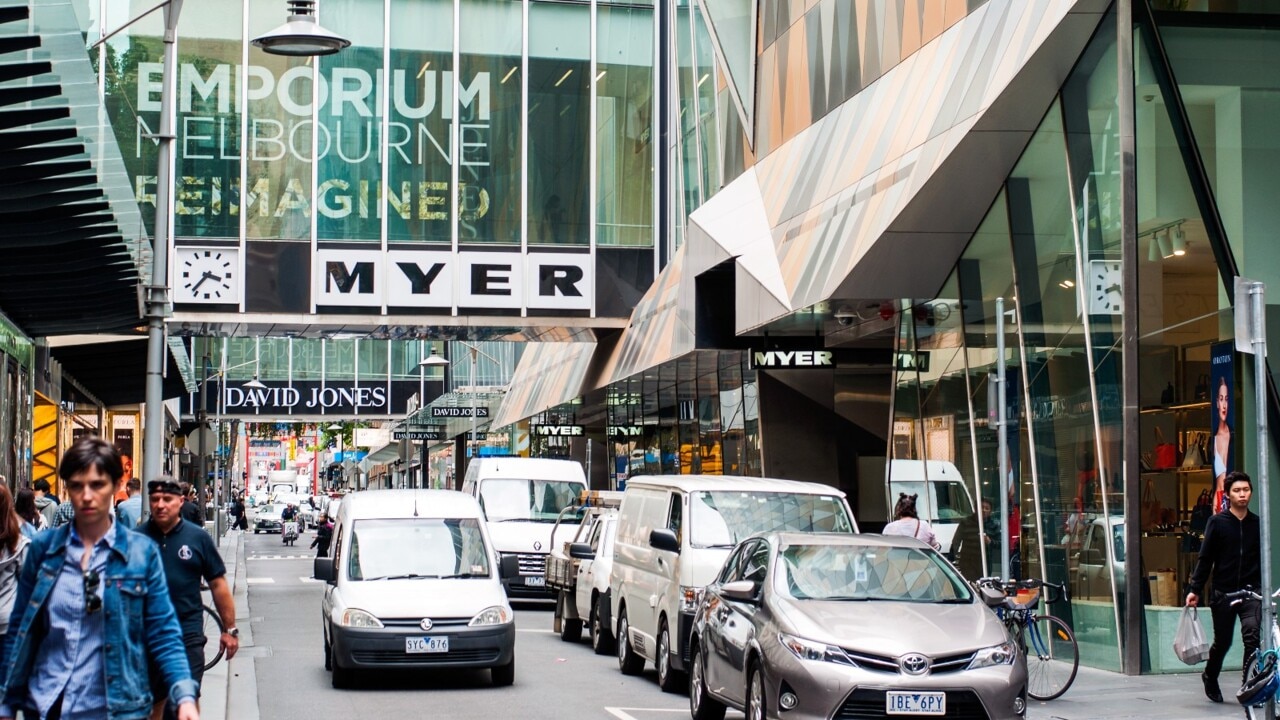
QLD Business
Don't miss out on the headlines from QLD Business. Followed categories will be added to My News.
Solomon Lew’s efforts to claim a seat in the Myer boardroom could be closer than many think and, regardless of the outcome of this week’s shareholder vote, the retailer’s board will need to reset its relationship with its billionaire shareholder.
It’s still going to be an uphill battle for Lew to secure the backing for his nominee, Terry McCartney, to join the Myer board, particularly after two proxy firms lined up against the move. This means it is likely to come down to small retail shareholders as Lew looks to drum up support to secure a vote of 50 per cent for McCartney.
Lew, who has nearly 23 per cent, can count on long-time value investor Geoff Wilson, who is sitting just below the substantial shareholder line of 5 per cent.
Lew is understood to have reached out to the department store operator’s other big shareholders in recent weeks, including Dimensional and former Colonial funds business First Sentier Investors. However, Investors Mutual, another large fund, is firmly against Lew joining the board.
Even if former Myer-Grace Bros general manager McCartney on Thursday falls short of the 50 per cent vote needed to secure a board spot it won’t be the last of Lew, who is playing the long game with Myer.
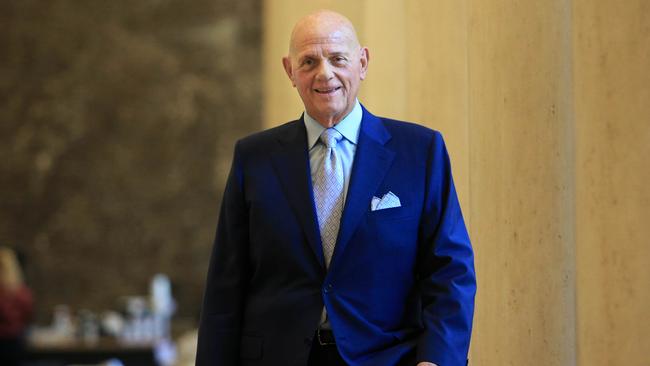
This includes gradually upping his cornerstone stake and raising the heat on Myer’s chair, JoAnne Stephenson, to make room for more than one spot on the board. For any company, a big dissident shareholder can be a destructive influence. They represent a serious boardroom distraction and often come with a list of demands while the company is usually suffering a downward spiral.
Lew’s pressure on the Myer board has ramped up since 2017. It has certainly delivered a distraction that at times has turned hostile, but in exposing some uncomfortable truths Lew has also forced Myer to be a better retailer.
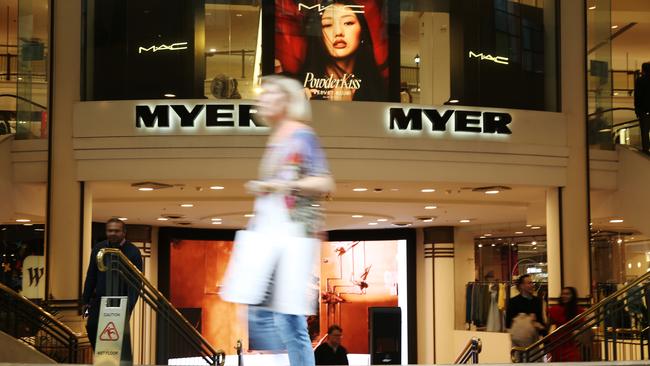
He has triggered a major strategy shift, calling out previous poor management decisions, including when the retailer was heading down a disastrous path of discounting.
Now under chief executive John King, Myer is gaining traction, even to the point that the once-struggling department store is again paying dividends after a five-year hiatus. King is cutting lease costs and driving better inventory management as well as a stronger digital strategy.
This performance has served to lower the temperature in the battle between Lew and Myer in recent years. This week’s vote marks the latest skirmish in the five-year public feud between Myer and its powerful shareholder seeking board representation.
This battle is the closest Lew has come to getting on the board. It has also exposed a big gap in the processes around how proxy firms make recommendations.

Sensing how close the vote could be, the Myer board led by Stephenson has unusually made no recommendation over the nomination of McCartney, giving the proxy players even more influence in the outcome. It’s hard to recall a company in recent years not stating a position one way or the other on proposals that impact the boardroom.
Two proxy firms, ISS and CGI Glass Lewis, have opposed the nomination of McCartney, broadly arguing there has been little case made for him to join Myer.
In contrast, the same proxy players quickly endorsed another billionaire’s efforts to get representation on the board of a company he was agitating.
Tech billionaire Mike Cannon-Brookes, who used his 11.3 per cent stake to derail AGL’s plans to split its business, last month won backing from ISS to have no less than four of his director nominees join the AGL board. CGI Glass Lewis supported two of Cannon-Brookes’ nominees.
In Myer’s case, both proxy firms declined to meet McCartney, suggesting their idea of proportional representation only works for some.
Myer’s board has also stepped up its own efforts to keep Lew at bay without explicitly doing so. It has been using proxy solicitation firms to lobby retail investors and issuing a mailout that urges all investors to vote, making it harder for Lew to hit the 50 per cent threshold.
‘Retail experience’
Lew’s long-running beef with Myer has been the lack of retail experience on the board, which he argues has been behind some big strategic missteps under previous management.
Outside of Jacquie Naylor, the former Just Jeans executive and current Michael Hill director, this remains the case in the small board that comprises just four non-executive directors, including Stephenson.
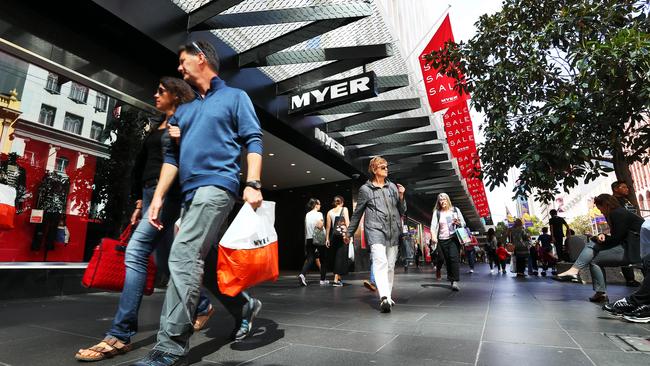
McCartney is the former managing director of Myer-Grace Bros and held several senior retailing roles in the former Coles Myer. He is also a long-serving director of Lew’s Premier Investments.
A loss will leave the billionaire retailer on the outside and prepared to use the “creeping provisions”, allowing him to increase his holdings by 3 per cent every six months without launching a takeover. The more he owns the harder it will be for Myer’s Stephenson to keep the door closed and demand independence from Lew.
With a stake worth $120m, Lew has real skin in the game. However, half of this holding is underwater after being acquired for more than $1.20 a share – Myer closed Friday at 64c. This should make him an even more motivated investor.
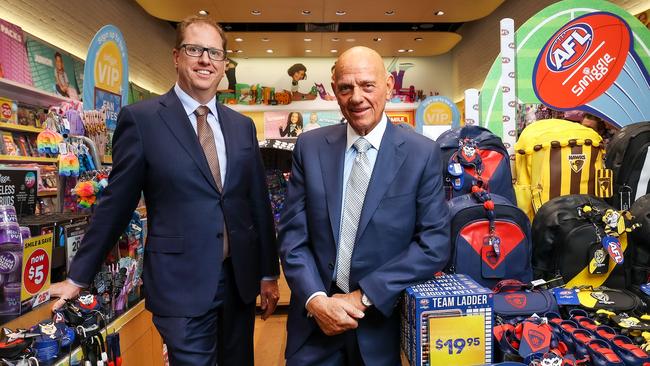
Myer has been one of the better performing mid-cap stocks this year with its shares up nearly 40 per cent. Although the current management strategy has the support of Lew, the retailer faces another rough operating environment as surging interest rates hammer consumer confidence. This is the time to have Lew inside the boardroom rather than outside.
Myer’s Stephenson has said she is open to discussing the prospect of board representation with Lew but has sought to frame the terms. She has received reassurances about perceived or actual conflicts of interests, leaving the sticking points around getting Lew agreeing to a standstill of not buying any more shares in Myer without a takeover.
She has also sought a reassurance that Lew backs the majority of the board remaining independent at all times.
Lew has rightfully refused to sign up to these points as it closes off his own options as an investor. Keeping Lew on the outside also shuts off options for others who have benefited from investing alongside the billionaire in companies such as Premier or listed homeware goods retailer Breville.
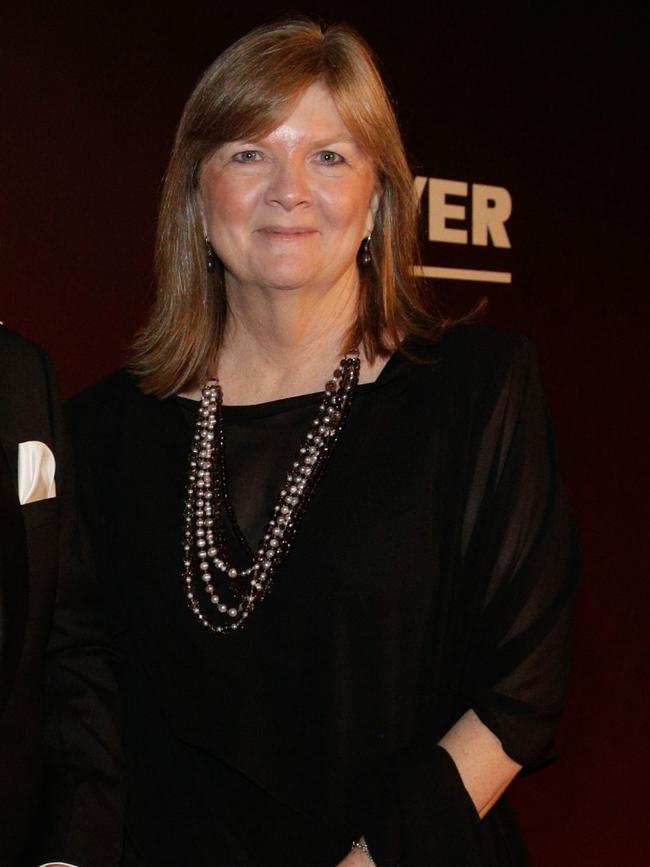
Lew is well within his rights to continue to buy shares in a company under the corporations rules, and if he had a representative on the board, as long as this is within a trading window. The demands for independence are balanced out by other majority independent directors on the board and the 77 per cent in shares not controlled by Lew.
Over at Breville, Lew has a 30 per cent stake in the homewares company and two aligned directors on the board, including chairman Tim Antonie.
Meanwhile, Lew’s Premier Investments, which includes brands from Just Jeans, Dotti and Smiggle has been one of the best-run retailers of the past decade. The only other retailer giving Lew a run for his money is JB Hi-Fi, with its former chief Richard Murray now working as Lew’s own chief executive.
Proxy firm ISS urges a vote against McCartney arguing that Lew has failed to provide any compelling rationale for his addition to the board, including how he would contribute to long-term shareholder value.
Likewise CGI Glass Lewis has recommended voting against McCartney saying Premier has not offered any arguments or evidence suggesting the current board lacks retail experience. It also questions whether Lew and his Premier Investments business is really is aligned with the interests of other shareholders.
In the past five years and through all cycles Lew’s Premier has delivered shareholder returns of 77 per cent – more than five times the gains of the S&P/ASX 200, and that’s before dividends. Breville has returned nearly 60 per cent and over the same period Myer has gone backwards 11 per cent.
johnstone@theaustralian.com.au
Originally published as Myer can’t keep billionaire Solomon Lew outside the tent forever




